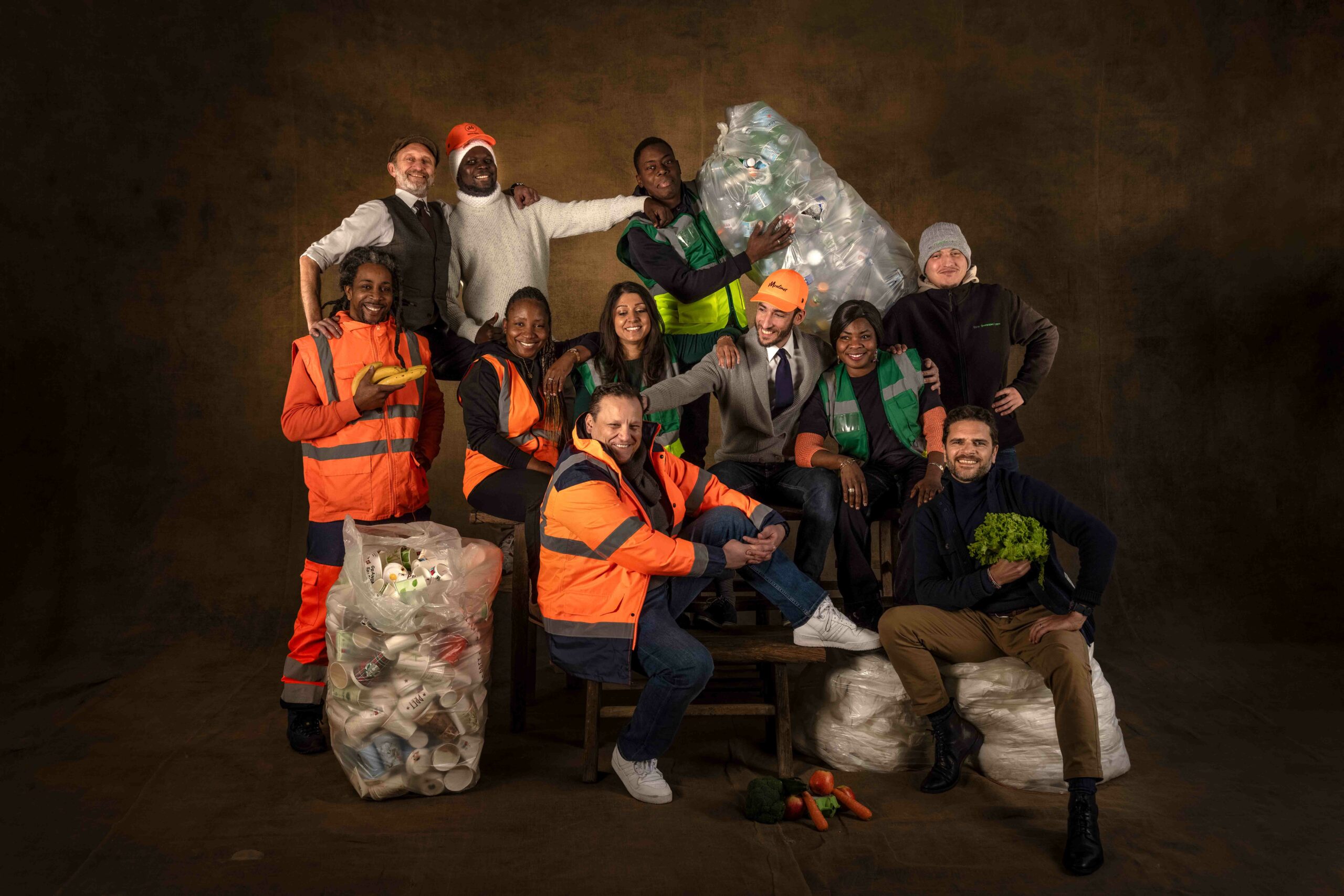Biodéchets : une ressource précieuse
Avec Olivier Salloum de Moulinot
La grande aventure des Jeux Olympiques et Paralympiques, cela fait deux ans qu’Olivier Salloum, le directeur commercial de Moulinot, la vit ! Pionnier de la valorisation des biodéchets dans la restauration, l’entreprise a en effet remporté le marché de la gestion des déchets de la plupart des sites des Jeux de Paris 2024. « Nous avons commencé à travailler avec le Comité d’organisation pour collecter et recycler les déchets du siège, dans l’immeuble Pulse, à Saint-Denis. Nous continuons avec les sites de Villepinte, Paris La Défense Arena. » explique-t-il. Un vaste chantier en cotraitance avec Groom, filiale de Tri-o Greenwishes, qui gèrera, elle, les déchets non alimentaires. « Montrer à tous qu’une entreprise d’insertion, PME du 93 basée à Stains, peut travailler avec les plus exigeants, c’est formidable. On n’est pas une multinationale et pour que les organisateurs des Jeux nous fassent confiance, c’est que l’on a une vraie valeur ajoutée. »

Des sacs-poubelle qui s’amoncellent avant d’être incinérés et des terres qui s’appauvrissent… Lorsqu’en 2013, le restaurateur Stéphane Martinez fait ce constat, il décide d’agir : avec son camion, il fait le tour de ses collègues pour les sensibiliser au tri sélectif et collecter des déchets qui deviennent compost. Aujourd’hui élargie aux écoles, collectivités, cette collecte mobilise 5O véhicules écologiques. « Bilan : 1 700 tonnes de biodéchets recyclés par mois. » Des déchets qui deviennent du biogaz et des fertilisants. « Nos partenaires sont les agriculteurs méthaniseurs de Seine-et-Marne auxquels nous vendons les biodéchets. » Une façon de reconnecter l’urbain et le rural. Moulinot a toujours conjugué innovation avec inclusion. Objectif de l’entreprise qui emploie 140 salarié·e·s : former toujours plus de femmes et d’hommes éloigné·e·s de l’emploi avec des contrats en CDD et CDI, y compris au siège.
Venu du secteur de la banque, expatrié en Roumanie, Olivier Salloum a opéré il y a dix ans un virage à 180 degrés pour accompagner Stéphane Martinez. « Son projet était excitant. Il avait un sens. » Un modèle aussi performant que vertueux qu’il veut reproduire en région. « On estime à 10 millions de tonnes les déchets alimentaires sur un an : 15 % seulement sont aujourd’hui recyclés. On a besoin de nous » !
Biowaste : a precious resource
The Olympic and Paralympic Games adventure started two years ago for Olivier Salloum, Commercial Director at Moulinot. Indeed, these pioneers in the food industry’s biowaste energy recovery successfully bid on a public contract to manage the waste of most of the Paris 2024 competition sites. “We started working with the Organising Committee to collect and recycle the waste produced at their Headquarters, in the Pulse building in Saint-Denis. In the future, we will also operate in the Villepinte and Paris La Défense Arena sites.” explains Olivier. These operations are executed with the help of Groom, a subsidiary of Tri-o Greenwishes, who will be dealing with the non-food waste. “This is a wonderful opportunity to show that a small company from Stains in Seine Saint-Denis, who operates work integration programs, can work alongside rigorous companies. We are not a global company, and Paris 2024’s trust shows our added value in the field of waste management.”
In 2013, Stéphane Martinez, who was working in a restaurant, noticed both the mountains of garbage bags waiting to be incinerated, and the state of the degraded lands surrounding him. He then decided to act, and drove around in his truck to raise awareness amongst his colleagues on waste management and sorting, and on compost made from biowaste. Today, a total of 50 environmentally-friendly vehicles go and visit local schools and public administrations. “The outcome: 1700 tons of biowaste recycled every month.”, to become biogas and fertilizers. “Our partners are the farmers in Seine-et-Marne who buy our biowaste.”: a way to reconnect urban and rural communities. Moulinot has always combined innovation and inclusion. The company, with its 140 employees, has made an effort to train women and men far removed from the workforce, and hires them in both short-term and long-term contracts – some of them directly in the Moulinot headquarters.
Former bank employee who immigrated to Romania, Olivier Salloum turned his life around ten years ago to join Stéphane Martinez at Moulinot. “His project was very exciting. It made sense.” Together, they have reached a point where their business model is both competitive and virtuous. Their goal is now to see it replicated in other areas of France. “We estimate food waste at a national level to be around 10 million tons per year. Today, only 15% is recycled. Moulinot is needed!”
